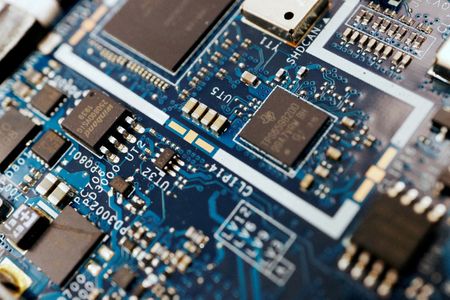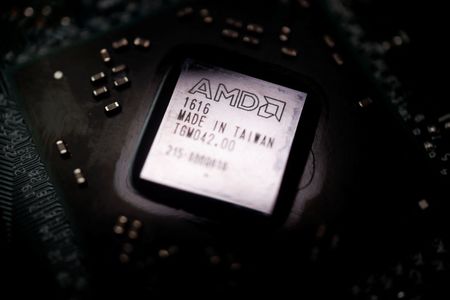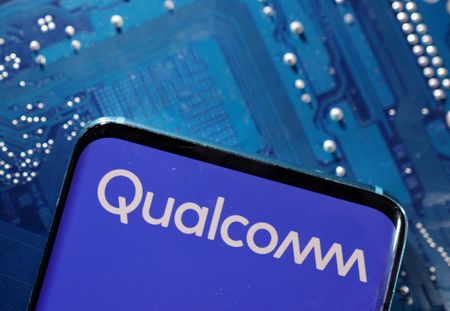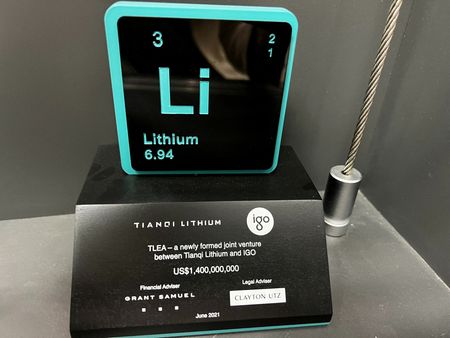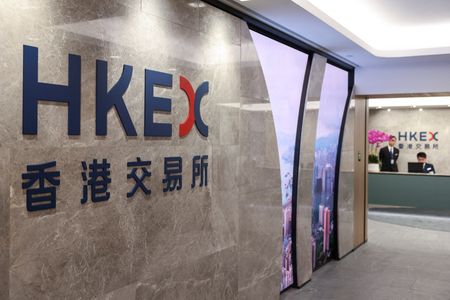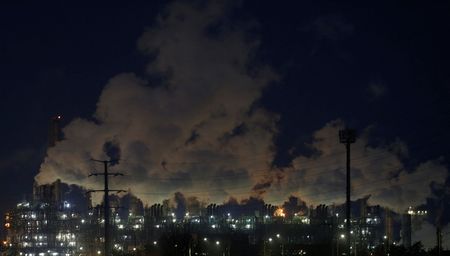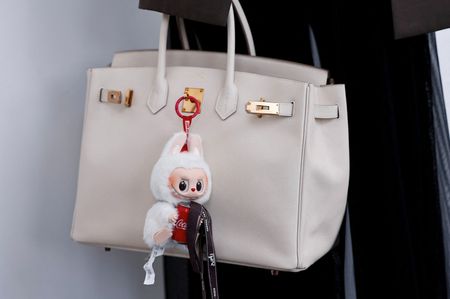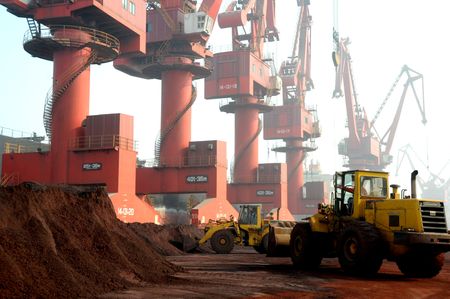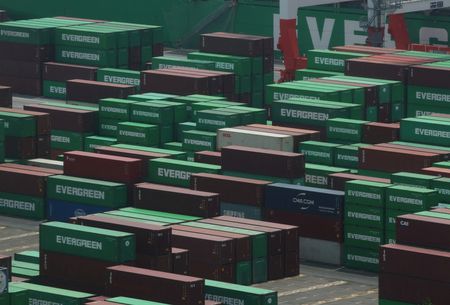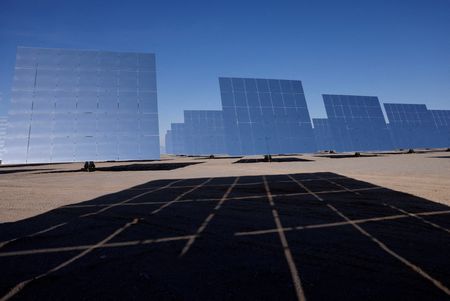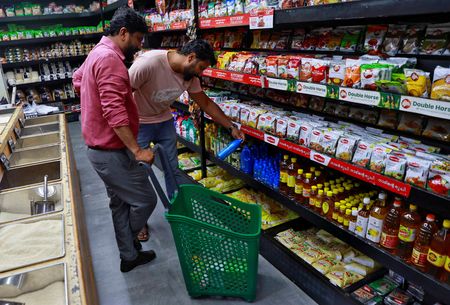By Eduardo Baptista and Che Pan
BEIJING (Reuters) -U.S. chipmakers that outsource manufacturing will be exempt from China’s retaliatory tariffs on U.S. imports, according to a notice by the main Chinese semiconductor association on Friday.
Given the highly specialized and multi-country nature of chip supply chains, there was uncertainty within the industry about how tariffs would be applied to chip imports.
“For all integrated circuits, whether packaged or unpackaged, the declared country of origin for import customs purchases is the location of the wafer fabrication plant,” the state-backed China Semiconductor Industry Association (CSIA), which represents the country’s largest chip companies, said in an “urgent notice” on its WeChat account.
For U.S. chip designers such as Qualcomm and AMD that outsource manufacturing to Taiwanese chipmaking giant TSMC, Chinese customs authorities will classify these chips’ place of origin as Taiwan, according to EETop, an information platform and forum for Chinese chipmakers.
This means China-based companies importing such chips will not be forced to pay China’s retaliatory tariffs on U.S. imports, EETop said on its WeChat account.
“In contrast, chips made by… Intel, Texas Instruments, ADI, and ON Semiconductor – which operate their own U.S.-based fabs – may be classified as U.S. origin and be liable for tariff rates of 84% or higher,” it added.
Shares of AMD and AI chipmaker Nvidia – two major customers of TSMC – rose 6% and 2.6% respectively, while Qualcomm was up 1.1%.
Intel meanwhile fell more than 6%. The company is one of the largest producers of personal computer chips and the only American semiconductor firm gearing up to manufacture the most advanced processors in the United States.
Analog chipmaker Texas Instruments’ shares slumped more than 8% and rival Analog Devices was down 3.3%. Automotive chipmaker Onsemi fell 3.4%.
Beijing on Friday increased its tariffs on U.S. imports to 125%, hitting back against U.S. President Donald Trump’s decision to hike duties on Chinese goods to 145%. EETop’s analysis was published on Friday before Beijing’s latest tariff hike.
CHINA CHIP INDUSTRY BENEFITS
After CSIA’s clarification, the prospect of high tariffs on U.S.-origin chips led to a surge in Chinese chipmakers’ shares on Friday.
“The notice from CSIA helps distinguish which U.S. chips will be hit with tariffs,” said He Hui, semiconductor research director at tech research company Omdia, “It is clear that some chips made in the U.S. will still be taxed even if they are packaged in China.”
He added that this could benefit China’s domestic chipmaking and its supply chains as foreign semiconductor firms pursue a “China for China” strategy – manufacturing for the Chinese market in China.
Beijing has long poured subsidies into strengthening its domestic production of mature-node chips, often dubbed legacy semiconductors. These chips, built on older manufacturing techniques, compete with analog components made by firms such as Texas Instruments.
“China’s exemption for outsourced U.S. chipmakers appears to be a calculated move to maintain economic stability and encourage foreign investment in local manufacturing,” said Michael Ashley Schulman, chief investment officer at Running Point Capital.
Globally, most mature-node semiconductor capacity is held by firms that both design and manufacture chips such as Texas Instruments. In China, such capacity is largely concentrated among contract manufacturers, according to a report last year by the U.S.-based Center for Strategic and International Studies.
Bernstein analysts said the CSIA’s move was a big surprise to the market as investors generally considered the location of packaging to be the country of origin, not the fab, and it was way more difficult to shift fabs.
It would make it harder for the likes of Intel and Texas Instruments to avoid Chinese tariffs, or at least some rejigging of manufacturing location and logistics. And potential beneficiaries could include their Japanese semiconductor rivals such as Renesas, they said.
(Reporting by Eduardo Baptista, Che Pan and Arsheeya Bajwa; Editing by Joe Bavier, Leroy Leo and Maju Samuel)

